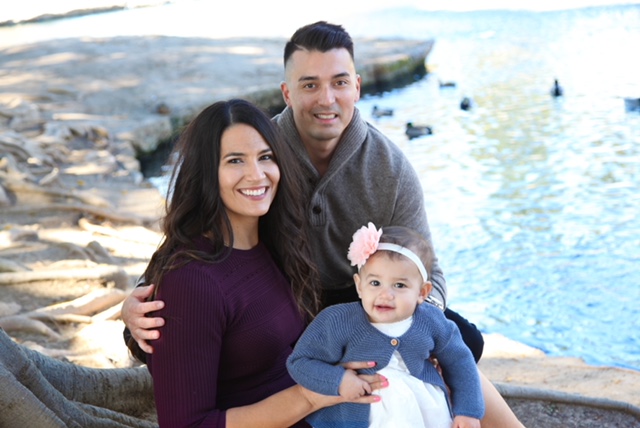Making Good Relationships Better – The Repair and Re-Pair Way to Happiness

It’s tough to be happy with life when you’re unhappy with yourself.
It’s tough to be happy with your relationship when you’re unhappy with your partner.
That parallel is deliberate. When a critical aspect of a situation is disappointing, the entire arrangement is also likely to be disappointing. Can such disappointment not only have similar causes but also similar solutions?
Let’s explore how that’s possible.
Many couples are conflicted about their relationship: feuding with their partner and conflicted within themselves about the value of their connection. They feel that something is missing, something is wrong, but their fights to correct the problems only make things worse. The partners also struggle with themselves about the costs and benefits of their commitment. They feel the relationship too good to leave, but it’s too unsatisfying to stay.
So they remain out of fear, feeling unhappy, stuck, and upset with their “disappointing” partner and with themselves for not having the courage to go after that missing “something”. and unhappy with their inability to make the relationship better. “Why can’t I make things better between us?”
Can we improve our relationship enough so we want to stay rather than fear leaving?
Can we improve our relationship with ourselves enough to become happier with our life?
Yes.
To solve these problems, we will need to make changes in our expectations and attitudes about our RELATIONSHIP and ourself. Giving up our attempt to fix your partner, or transform ourselves. The solution lies in repairing how we see and treat our partner and ourselves. In how we RELATE to our partner and ourselves.

A FUNDAMENTAL NEED FOR CONNECTION

Let’s begin at the beginning. Why do we pair up in the first place? For great sex? For a larger combined income? Security? To fill the gaps in our sense of self? Love? All of the above and more? Sure!
Humans have a profound need for some deep, solid connection with another. A connection that leaves us feeling loved and lovable, safe, seen, accepted, secure. And pairing up with another promises to meet those needs. Having such a connection enables us to withstand and overcome many of life’s pains, disappointments and tragedies. And, ideally, our relationship can inspire us to become our best self.
So why then so many unhappy couples?
Often because few of us know how to actually create such a fulfilling, loving connection.
Some relationships (our unique pattern of feelings, interactions, history and meaning) grow love.
Other’s destroy it.
We want a good relationship, but what does that involve? What does it “look like”? It helps to have some “picture” of what we’re trying to achieve. And some concrete plan to get there. Fortunately for us, scientists have been carefully studying relationships that meet our deep needs and those that fail, looking for the distinguishing characteristics of each.
Probably the most well known, highly regarded relationship researcher is Dr. John Gottman. His studies have identified the “Marriage Masters” and the “Marriage Disasters”. Both type of bonds show us what to aim for and what to avoid in order to have a deep, satisfying bond .
Remember both types began their relationships with love and high ideals regarding how they would relate each other! But the “Masters” deepened and improved their connection, while the “Disasters” damaged or even destroyed it.
Both types may have started with the same aspirations, but how they actually treat each other when disappointment occurs is the key difference between these two kinds of marriages. (Note that these principles apply to unmarried couples and those considering marriage as well.)

THE MARRIAGE MASTERS

In “Master” relationships, the partners deliberately strive to have regular positive interactions, rather than just enjoying such encounters when they occur. We’ve all heard, of course, that “marriage takes work.” The Masters regularly engage in that work by producing at least 5 positive exchanges for every negative contact. Especially during conflicts when it matters most.
Masters have high positive to negative interaction ratio because they deliberately act kind and generous, caring and considerate, showing fondness and admiration to each other. That’s what most of us were hoping for. But many think it occurs automatically and doesn’t require work
Since no person, no relationship is perfect (see Brad and Angelina), there will always be things that bother each of us about the other. Here, too, the “Masters” deliberately go positive by intentionally looking for things to praise about each other-rather than criticize. The Masters look for opportunities to show fondness and admiration for each other.
Is any of this missing from your relationship? Could the Masters’ approach could improve your bond?
No, this isn’t just a pollyannaish, “La La Land” denial of our partner’s reality. Nor is it an insincere show of “love”. The Masters give real love and get real love in return. They help each other grow. By giving their partner the benefit of the doubt rather than a “guilty” verdict.
THE MARRIAGE DISASTERS
Reverse the Masters’ picture and see the problems that the “Disasters” create in their relationships: more negative than positive interactions. Hostile, abusive, attacking, basically seeking things to criticize. Defensiveness and counterattacks. Ignoring or minimizing a partner’s positive qualities or efforts. Emphasizing their shortcomings.
This isn’t a hard-nosed, “honest” judgement of our partner’s imperfections, it’s an exaggeration of them. A strategic overstatement meant to crush our partner. The belief that WE know the “truth” about our partner.
The “repairs” such attacks are intended to produce in a partner may actually destroy their incentive to change. Creating resentment and defiance instead. And misery for both.
THE BOTTOM LINE
If we reduce the essence of each type of connection to one word, those words would be: safety and danger.
The Masters feel safe with each other. They’re not on edge expecting the next personal attack. They’re relaxed and at ease. They’re safe because they’re kind to each other.
The Disasters feel their partner is a lethal danger to their self-esteem and emotional well-being. They’re tense, wound up, on edge to defend against the next personal attack, because they’re cruel to each other. Absolutely certain they are right and their partner is wrong.
Which conditions create and nurture the relationship that you need?

CREATING A “DISASTER”
How do things get so bad?
As already mentioned, all relationships begin with high expectations and a commitment to make things “truly wonderful”. But how we handle the inevitable disappointments and setbacks will determine the ultimate quality of our connection.
Some actually think that criticism and contempt will motivate change and improve things. Some believe that they can punish and coerce their partner into “growth”.
But that collides with our need to be fully accepted and loved as we are. And it deeply hurts when that acceptance and love isn’t given. Some expecting their partners to change for them, at first try persuasion. This double standard, “you change-I stay the same”, arouses hurt in their partner and more conflict between them.
And almost always, they have the same double standard, expecting us to change while they remain the same.
So when we try to improve the relationship by changing each other, we end up changing nothing except causing damage to our connection and to each other.
When our efforts to persuade a change fails, we escalate to nagging, criticizing, complaining. And they nag, complain, and criticize us in return.
Feeling we are entitled to better than they are giving us, feeling that WE ALONE are the injured party and THEY ALONE are the cause of all relationship problems, we feel justified in any and every attack we make on each other. We look for things to criticize. And we don’t hold back when the opening occurs. Tension grows. We feel anxious around each other and prepare to defend ourselves-rather than feeling the safety necessary to grow.

ANOTHER APPROACH
In conflict, we almost always focus exclusively on what they’re doing “wrong”, while we’re, typically, blind to our own part in the problem. What if that approach is the problem? That approach preventing the solution the original problems and creating more problems along the way?
We both tend to forget that we EACH contribute something to our unhappy situation. We’re both trapped in the delusion of our own “complete innocence” and their “absolute responsibility and guilt.” From such a perspective, THEY must change and we are ENTITLED to that change.
Since, typically they feel exactly the same we get nowhere. It’s an impasse. Who will back down and change? Who will “win”?
No one wins that way.
How would the “Masters” handle this dilemma? They might have prevented it in the first place by avoiding criticism and attacks. And by showing fondness and affection.
OR….since no one, no relationship is perfect, how would Masters “undo”and repair the damage and resolve the impasse?
They would end the self-satisfied delusion of innocence and…..gulp…face the painful reality of THEIR contributions to the problems and the conflicts.
Yes, WE FEEL the IMPACT of our partner’s part in the problem: the hurt, the disrespect, the dismissal, the sense of rejection, and more. So THEY MUST BE the cause of everything? Right?
What we don’t feel is the IMPACT of OUR actions on THEM: the hurt, the disrespect, the dismissal, the sense of rejection, etc that THEY feel. So we don’t SEE our part. They do.
They’d don’t see THEIR part. WE do.
And neither of us see the pain under the rage. “She’s just a b….” “He’s just a d….”
Both are hurt. And BOTH need to own their part of the problems. No one is an angel or the devil.
Repairing a damaged relationship will make us feel better about our partner, our relationship, and ourselves: all critical elements in the big picture of our happiness.
NEXT TIME: MIGHT repairing our relationship with ourself improve our overall happiness?
Tony Johnson is a retired university mental health center psychologist who has been married for 45 years….because he did make these changes. He can be contacted for consultations at: johnson.tony4536@gmail.com
Are you into beautiful Costa Rica?
All interesting things you want to know about Costa Rica are right here in our newsletter! Enter your email and press "subscribe" button.


